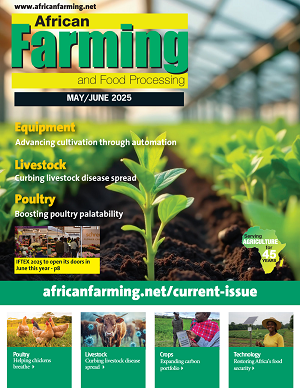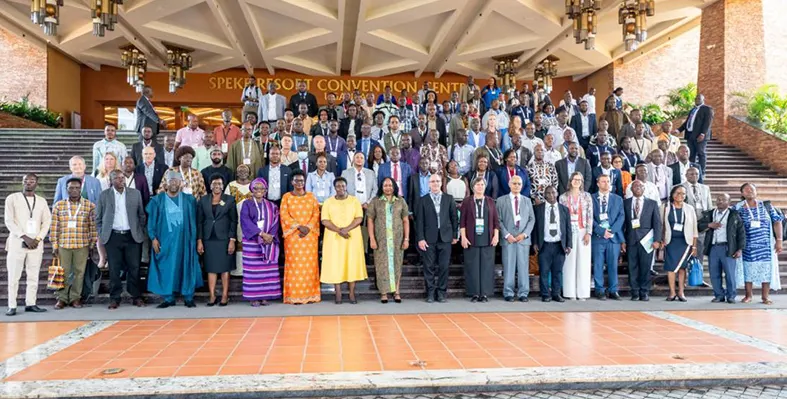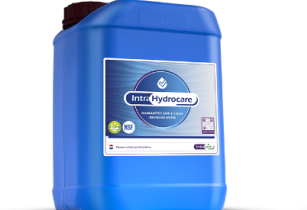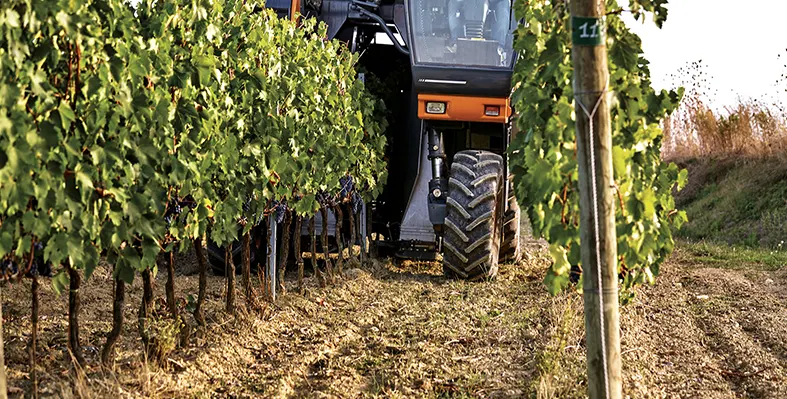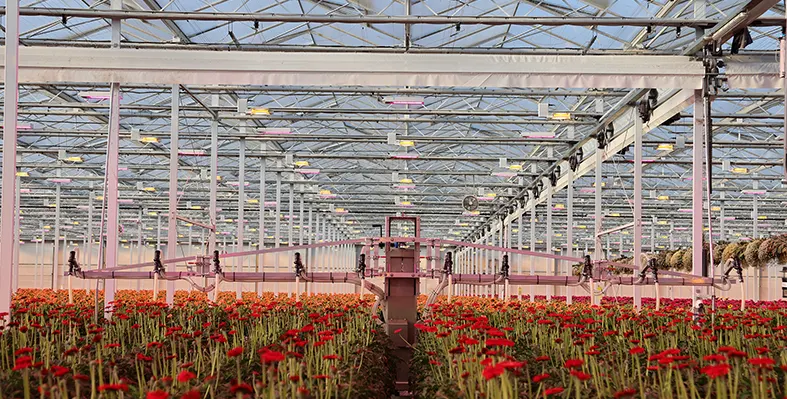In The Spotlight
Tanzania’s fishing sector under threat from foreign fleets
Tanzania’s fishing industry has long supported families, kept children in school, and sustained coastal communities
But behind the scenes, the sector is under serious threat. The problem isn’t natural disasters or predators, but something worse—illegal foreign fishing fleets quietly stealing Tanzania’s marine resources.
According to the Tanzania Relief Initiative (TRI), many of these foreign vessels disguise themselves under local names and operate in Tanzania’s Exclusive Economic Zone (EEZ). Despite clear territorial boundaries, these fleets continue fishing without proper permits or accountability. The Global IUU (Illegal, Unreported, and Unregulated) Fishing Index has ranked Tanzania poorly, placing it among the worst-performing countries in recent years.
Edwin Mugambila, TRI CEO has called for urgent action. “Foreigners must pay taxes so the country benefits. Locals should be the ones earning a living from our waters,” he said at a recent press conference. He urged the government to introduce strict laws, involve local fishing associations in licensing, and implement modern tracking systems.
One major concern is the depletion of key fish species. Once abundant and valuable fish like Robusta are now nearly extinct in Tanzanian waters. Mugambila also raised alarm over the capture of banned species, including whales and sharks, with foreign crews taking only the fins and discarding the rest. Many foreign operators reportedly use Tanzanian proxies to appear legitimate while keeping full control.
Despite having over 1,400 km of coastline and more than 61,000 square kilometres of inland water, marine fishing contributes just 1.7 to 1.8 per cent to Tanzania’s GDP. Most fishing is done by small-scale operators using outdated tools. Deep-sea fishing, where the real value lies, is dominated by foreigners. Meanwhile, aquaculture remains underdeveloped, contributing only about 1 per cent to the economy.
Local fishers and entrepreneurs are also struggling to compete. Sarah Mwambu from the Tanzania Association of Marine Entrepreneurs (TAOME) said foreign buyers pay much higher prices for fish, leaving locals unable to match them. “We used to buy at 15,000/- per kilo. Now they offer 40,000/-. We can’t keep up,” she said.
The TRI and local groups are calling for tighter enforcement, better infrastructure, and greater support for Tanzanian fishers. With bold leadership and proper investment, Tanzania can take control of its waters and ensure the ocean’s wealth benefits its people first.
Cultivating change: urban agriculture in Namibia
As Namibia’s cities expand and climate pressures increase, urban agriculture is becoming a vital solution
It is more than just growing food – it offers a path to sustainable development, social fairness, and economic opportunity.
In Windhoek and other towns, communities are transforming empty plots, rooftops, and informal settlements into gardens, chicken coops, and small farms. These projects help address major challenges such as water shortages, food insecurity, and rapid urban growth.
Between 2011 and 2023, Windhoek’s population increased by over 65%, stretching infrastructure and services to the limit. More than 100,000 households now live in informal areas, where access to healthy, affordable food is often lacking. At the same time, climate change, rising food prices, and economic hardship have made it harder for families to feed themselves.
Urban farming helps by growing fresh and affordable food close to where it’s needed. It creates jobs for women and young people, and encourages better use of land and natural resources. It also supports several of the United Nations Sustainable Development Goals, including those related to hunger, health, gender equality, and climate action. By using ideas like waste recycling, nutrition education, and circular economy practices, communities grow stronger and gain valuable skills.
During the Covid-19 crisis, UNDP Namibia launched the Build Back Better Agriculture Project to respond to food shortages. Since then, it has grown into a wide-reaching programme that supports over 1,300 households and small businesses. It provides access to digital tools for planning crops, solar-powered transport for taking produce to market, water-saving systems, climate-smart farming, and skills training through vocational colleges.
With 70% of Namibians living under water stress, saving water is crucial. Local farmers are adopting precision irrigation, drought-tolerant crops, and modern mapping tools to grow more with less. Namibia can also take inspiration from countries like Mexico, where ancient farming techniques are combined with rainwater harvesting.
To grow further, urban agriculture will need support from government, business, and communities. With smart investment models, it can continue to improve lives and protect the environment. This green movement is about more than food – it’s about securing a better, fairer future.
South Africa's call for local renewable products: a new era
South Africa's Select Committee on Agriculture, Land Reform and Mineral Resources has called on the Department of Electricity and Energy to prioritise the local manufacturing of renewable energy products instead of relying on imports
This came after the department briefed the committee on the implementation of the Renewable Energy Sector Master Plan (RESMP).
During the presentation, the department outlined the key goals of the Master Plan, describing it as a driver for industrial development that aims to meet the growing demand for renewable energy, especially solar and wind power. A strong focus was placed on the importance of promoting inclusive economic growth by involving previously disadvantaged groups, with particular emphasis on youth and women, in the renewable energy sector.
The committee was briefed on several initiatives under the Master Plan. These included the localisation of renewable energy production, the rollout of skills development programmes, and the establishment of proper monitoring systems to track progress. Committee members stressed that the plan should not only address energy needs but also promote job creation and skills development.
Members raised concerns about the involvement of vulnerable communities, especially those in rural areas, asking the department how it plans to ensure these groups benefit from the Master Plan. The department responded by affirming its goal to ensure that at least 50% of job opportunities go to youth and marginalised communities. It also highlighted ongoing efforts to identify skills needs and expand internship and training programmes.
Regarding local manufacturing, the committee questioned the current focus on training people only for assembly work rather than producing renewable energy components like solar panels and charge controllers. They urged the department to move beyond just assembling and start developing the capacity to manufacture such products locally. In response, the department confirmed that steps are being taken to explore and expand local manufacturing opportunities.
The committee also flagged concerns about regulatory hurdles, particularly a moratorium from the Department of Defence, which has delayed the issuing of letters of no objection needed by Independent Power Producers (IPPs). They warned this could slow down progress in renewable energy projects. The department assured the committee it would work with the relevant departments to address these challenges and avoid any delays for IPPs.
Overall, the committee urged the department to speed up efforts to localise renewable energy production and ensure broad community participation.
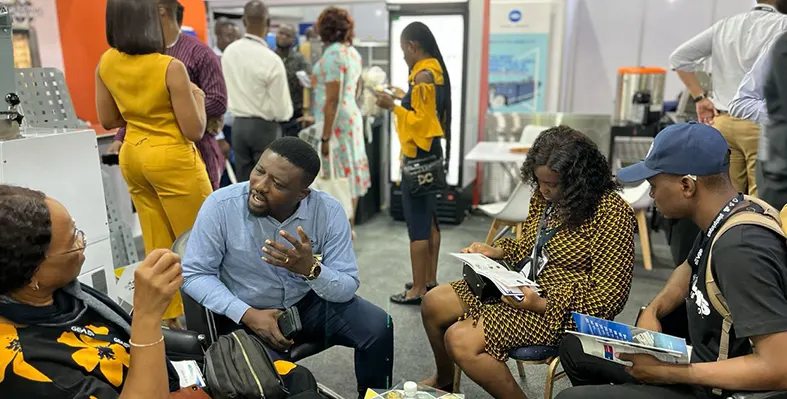
The 11th edition of Agrofood Nigeria will take place in March 2026. (Image credit: Agrofood Nigeria)
Agrofood Nigeria 2026: a landmark event
The 11th edition of Agrofood Nigeria 2026 will be held from 24th to 26th March at the Landmark Centre in Lagos.
This major event highlights the growing momentum of Nigeria's agrofood sector, offering a unique platform for industry leaders, suppliers, and professionals across the entire value chain to come together.
Organised by Fairtrade Messe in collaboration with Modion Communications, Agrofood Nigeria 2026 is set to be a key event, drawing thousands of participants from across Nigeria and West Africa. It will showcase innovation and provide opportunities for networking, business development, and knowledge sharing. This year’s event features focused partial fairs, offering specialised experiences in agriculture, food + bev tech, food ingredients, packaging, and food + hospitality. This allows professionals to explore specific sectors in depth.
A highlight of the 2026 edition is the Netherlands as the guest of honour, marking the strong partnership between Nigeria and the Netherlands in the agrofood sector. This special designation will promote Dutch expertise and create valuable opportunities for collaboration between the two nations' agricultural stakeholders.
Key features of Agrofood Nigeria 2026 include:
- Increased regional reach with attendees from across West and Central Africa.
- Government participation, including ministries from both federal and Lagos State governments, demonstrating strong support for the event.
- National pavilions from countries such as China, Germany, Italy, the Netherlands, and South Africa, highlighting international collaboration.
- Over 100 global exhibitors showcasing tailored products and solutions for the Nigerian market.
- Insightful conference sessions, building on the success of 2025 with more speakers and networking opportunities.
- Co-location with WACCSE, promoting advancements in West Africa’s cold chain sector, enhancing technology and cooperation.
With support from over 20 respected organisations, including government agencies, international chambers, and trade bodies, Agrofood Nigeria 2026 cements its position as West Africa’s leading platform for innovation in the agrofood and packaging sectors.
Nigeria’s growing agrofood sector is reflected in its significant investments in food and packaging technology, making it one of Africa’s largest importers in this field. The Nigerian food market is projected to reach US$233.53bn by end of 2025, with a steady annual growth rate of over 10%, further boosting the importance of this key event.
Tanzania’s fishing sector under threat from foreign fleets
Tanzania’s fishing industry has long supported families, kept children in school, and sustained coastal communities
But behind the scenes, the sector is under serious threat. The problem isn’t natural disasters or predators, but something worse—illegal foreign fishing fleets quietly stealing Tanzania’s marine resources.
According to the Tanzania Relief Initiative (TRI), many of these foreign vessels disguise themselves under local names and operate in Tanzania’s Exclusive Economic Zone (EEZ). Despite clear territorial boundaries, these fleets continue fishing without proper permits or accountability. The Global IUU (Illegal, Unreported, and Unregulated) Fishing Index has ranked Tanzania poorly, placing it among the worst-performing countries in recent years.
Edwin Mugambila, TRI CEO has called for urgent action. “Foreigners must pay taxes so the country benefits. Locals should be the ones earning a living from our waters,” he said at a recent press conference. He urged the government to introduce strict laws, involve local fishing associations in licensing, and implement modern tracking systems.
One major concern is the depletion of key fish species. Once abundant and valuable fish like Robusta are now nearly extinct in Tanzanian waters. Mugambila also raised alarm over the capture of banned species, including whales and sharks, with foreign crews taking only the fins and discarding the rest. Many foreign operators reportedly use Tanzanian proxies to appear legitimate while keeping full control.
Despite having over 1,400 km of coastline and more than 61,000 square kilometres of inland water, marine fishing contributes just 1.7 to 1.8 per cent to Tanzania’s GDP. Most fishing is done by small-scale operators using outdated tools. Deep-sea fishing, where the real value lies, is dominated by foreigners. Meanwhile, aquaculture remains underdeveloped, contributing only about 1 per cent to the economy.
Local fishers and entrepreneurs are also struggling to compete. Sarah Mwambu from the Tanzania Association of Marine Entrepreneurs (TAOME) said foreign buyers pay much higher prices for fish, leaving locals unable to match them. “We used to buy at 15,000/- per kilo. Now they offer 40,000/-. We can’t keep up,” she said.
The TRI and local groups are calling for tighter enforcement, better infrastructure, and greater support for Tanzanian fishers. With bold leadership and proper investment, Tanzania can take control of its waters and ensure the ocean’s wealth benefits its people first.
Tanzania launches e-Kilimo digital system to improve agricultural services
Hussein Bashe, Tanzania's minister of agriculture has launched a new digital agricultural extension system called e-Kilimo (Digital Extension) to enhance services for farmers and ensure better accountability among agricultural extension officers nationwide.
The system was officially introduced on July 16, 2025, at the Mtanana Crop Innovation Center in Kongwa District.
Bashe explained that the e-Kilimo system will allow farmers to easily access information about the number of extension officers in their area, their locations, and contact details. This will help farmers connect with the right people for support and advice.
In addition, the system requires every extension officer to complete a service performance form. This will be used to evaluate their effectiveness at the end of each year, helping to identify officers who are doing their jobs well and take corrective action against those who fail to meet their responsibilities.
Bashe also emphasized that the system aims to encourage accountability among extension officers and improve the security of agricultural input distribution. The ministry of agriculture plans to register input sellers to ensure that if counterfeit inputs are sold to farmers, it will be easier to trace the responsible parties and take necessary actions.
Overall, the e-Kilimo system is expected to improve the transparency and efficiency of agricultural services in Tanzania, making it easier for farmers to get the help they need and ensuring that extension services are delivered effectively.
LEMKEN Solitair PT: precision sowing redefined
The new LEMKEN Solitair PT is a high-performance drill combination with a power harrow, designed for professionals who demand efficiency and precision in a variety of soil conditions
Perfect for farmers and contractors, this machine sets new standards in sowing with its exceptional seedbed preparation, ease of use, and versatility.
Optimised seedbed preparation with power harrow
A good seedbed is essential for even crop emergence, and the Solitair PT excels here. It comes with the Zirkon power harrow, featuring four tine carriers per metre of working width. The harrow's unique tine layout, combined with hydraulic depth adjustment as standard, ensures consistent soil crumbling and flow in all conditions. The working depth, rotor speed, and forward speed can all be individually adjusted, enabling the machine to work both quickly and shallow or deeply and thoroughly, depending on soil type and tillage needs. The levelling bar can be adjusted either hydraulically or mechanically for consistent, high-quality results.
Tank options to suit every need
To boost efficiency, the Solitair PT is equipped with large-capacity metal tanks. You can choose between a single tank with 4,400-litre capacity or a double tank with 5,100 litres (40:60 split). Built with corrosion-resistant parts and an integrated agitator shaft, the modular metering system ensures reliable operation, even with different seeds or fertilisers.
Precision sowing with OptiDisc coulter bar
The Solitair PT features a high-quality coulter bar with parallelogram-guided double disc coulters, available in OptiDisc M (up to 45 kg coulter pressure) or OptiDisc H (up to 70 kg coulter pressure). The coulter pressure can be adjusted either mechanically or hydraulically, independent of seed depth, making it ideal for varying soil conditions and high-speed operations. To improve seed placement, the machine also includes a pre-running trapeze packer roller that ensures optimal seed-to-soil contact, promoting fast and uniform crop emergence.
Designed for practicality and flexibility
The Solitair PT is designed for ease of use in everyday farming tasks. Its long drawbar allows tight turns, even with large tractors. Additional tools like leading tyre packers, wheel mark eradicator discs, and tractor wheel mark eradicators provide further adaptability for any situation.
The LEMKEN Solitair PT is a future-oriented, reliable seed drill that offers precision, flexibility, and top-quality results. It is an excellent choice for arable farmers and contractors who demand the best performance in their sowing operations.











